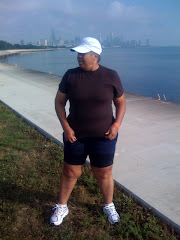The human psyche is amazing.If the human brain is the primary organ of human adaptation, then the psyche is the accumulated effect of each individual person's adaptation to the human and physical environment.It's the brain that allows human beings to be able to build societies in a vast range of environments that offer many different kinds of challenges. Our brains, and their function - our psyches-adapt, build relationships and communities, rituals and governments that make it possible for us to live effective and satisfying lives in environments as distinct as dust storms and ice storms, rain forests and mountain ranges.
We know that human psyche can adapt, can find a balance in all sorts of circumstances, can create all sorts of societies and relationships that keep us functioning on an even keel, eating, hunting or raising food, building shelters, finding mates, raising children, caring for the old. But there are conditions, physical and human, that overwhelm the human psyche. and when the human psyche is overwhelmed (in the words of Bessel Van der Kolk) we talk about trauma.Why write about trauma in a newsletter about caring for people with HIV?Because trauma - overwhelming, protracted or unrelenting fear, hurt or danger-is common in the lives of people living with HIV/AIDS -more so than in the general population (reviewed in Whetten et all 2008) .
Because psychosocial factors like having a trauma history (along with depression and other mental illnesses), are known barriers to the ability of people living with HIV/AIDS adhering to ART regimens. Because people who have experienced multiple traumatic events - abuse, sexual assault, homelessness - are at higher risk for a host of negative health outcomes (the ACE study). There is even some evidence emerging that people who have experienced traumatic stress experience more rapid decrease in CD4+/CD8+ cell ratios than those without trauma histories.
For people helping people who are living with HIV/AIDS.
All the Way IN | Blog Talk Radio Feed
Twitter / RevLake
About This Blog

- Elandus
- Eugene, OR, United States
- Happiness comes only when we live life as it comes: one second, one breath, one heartbeat, one decision, at a time.

